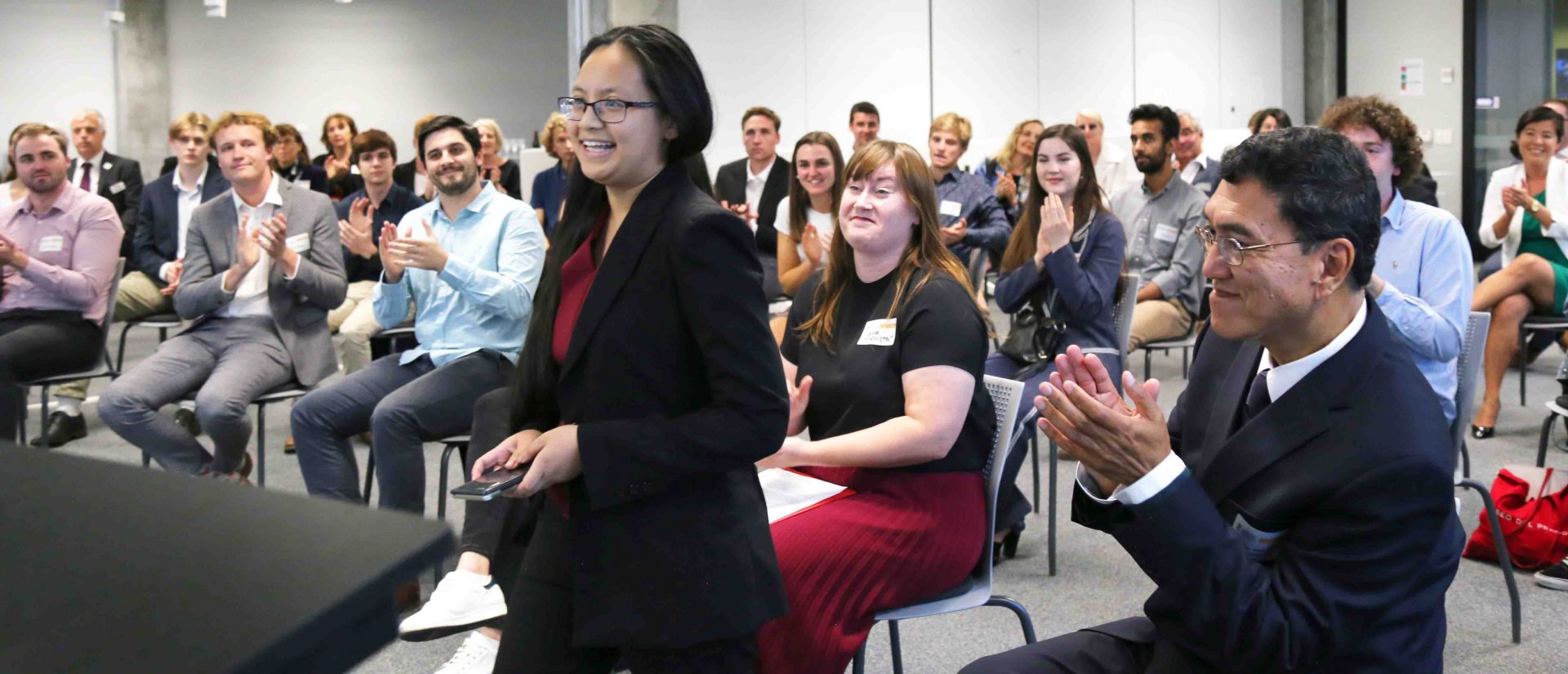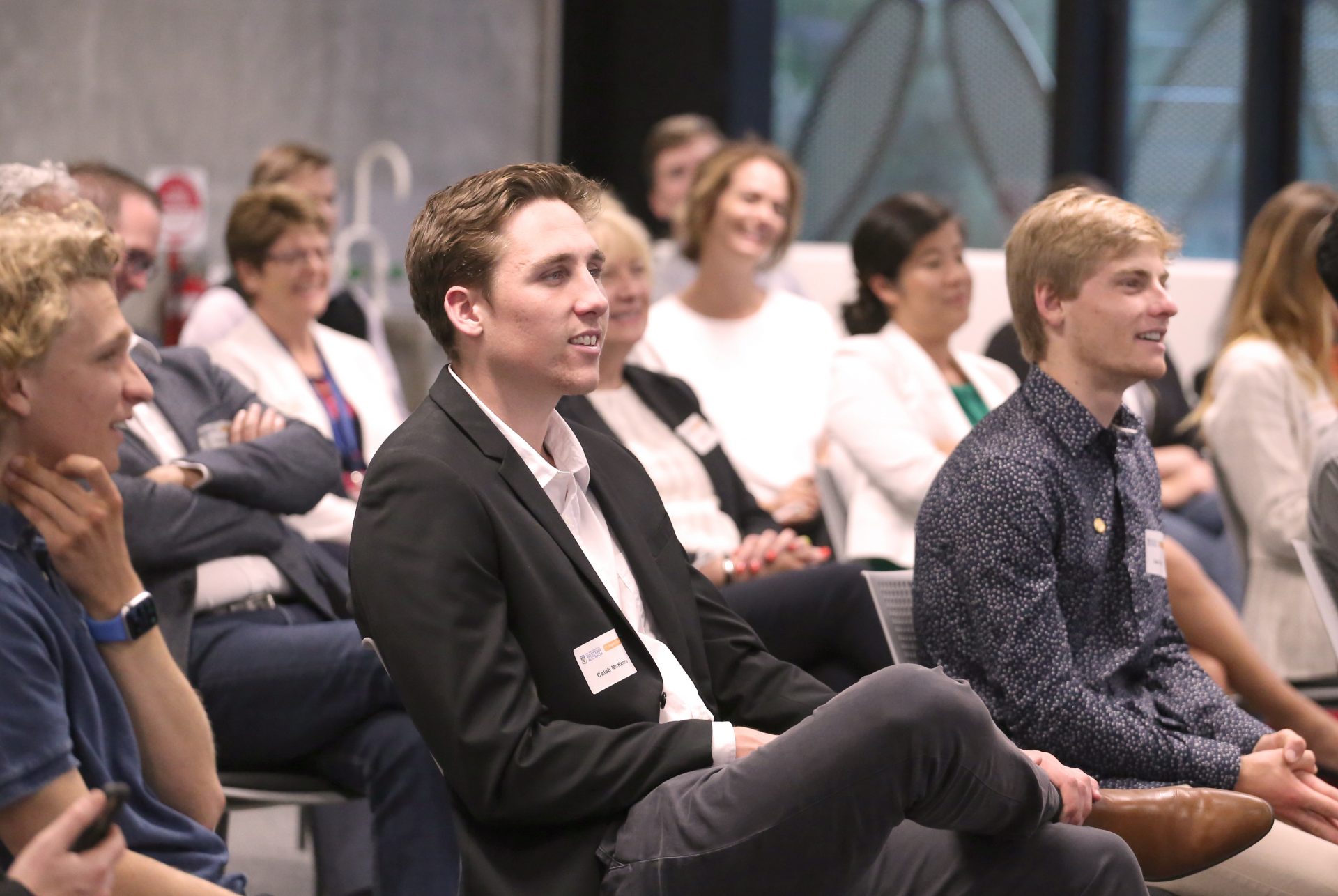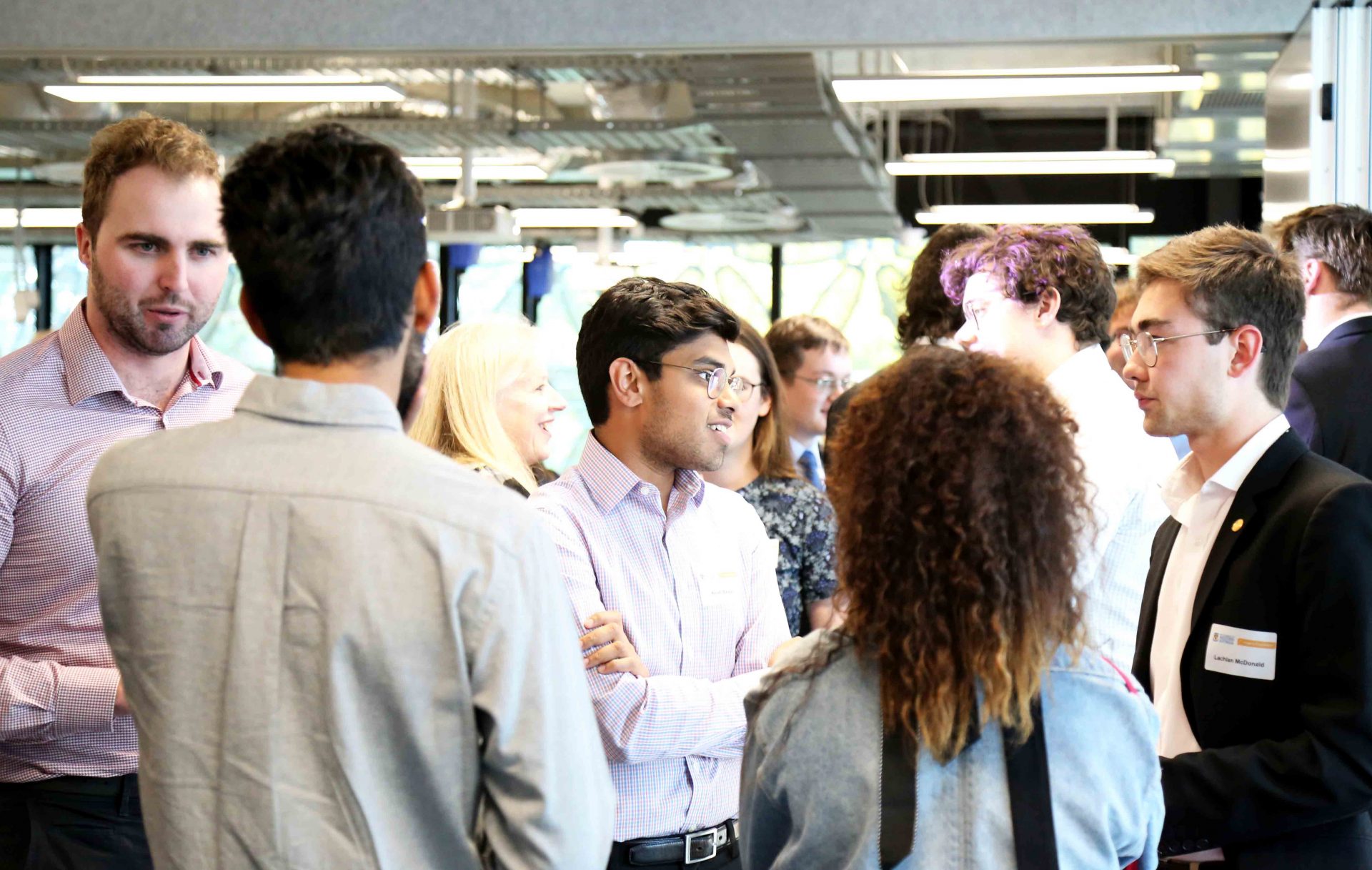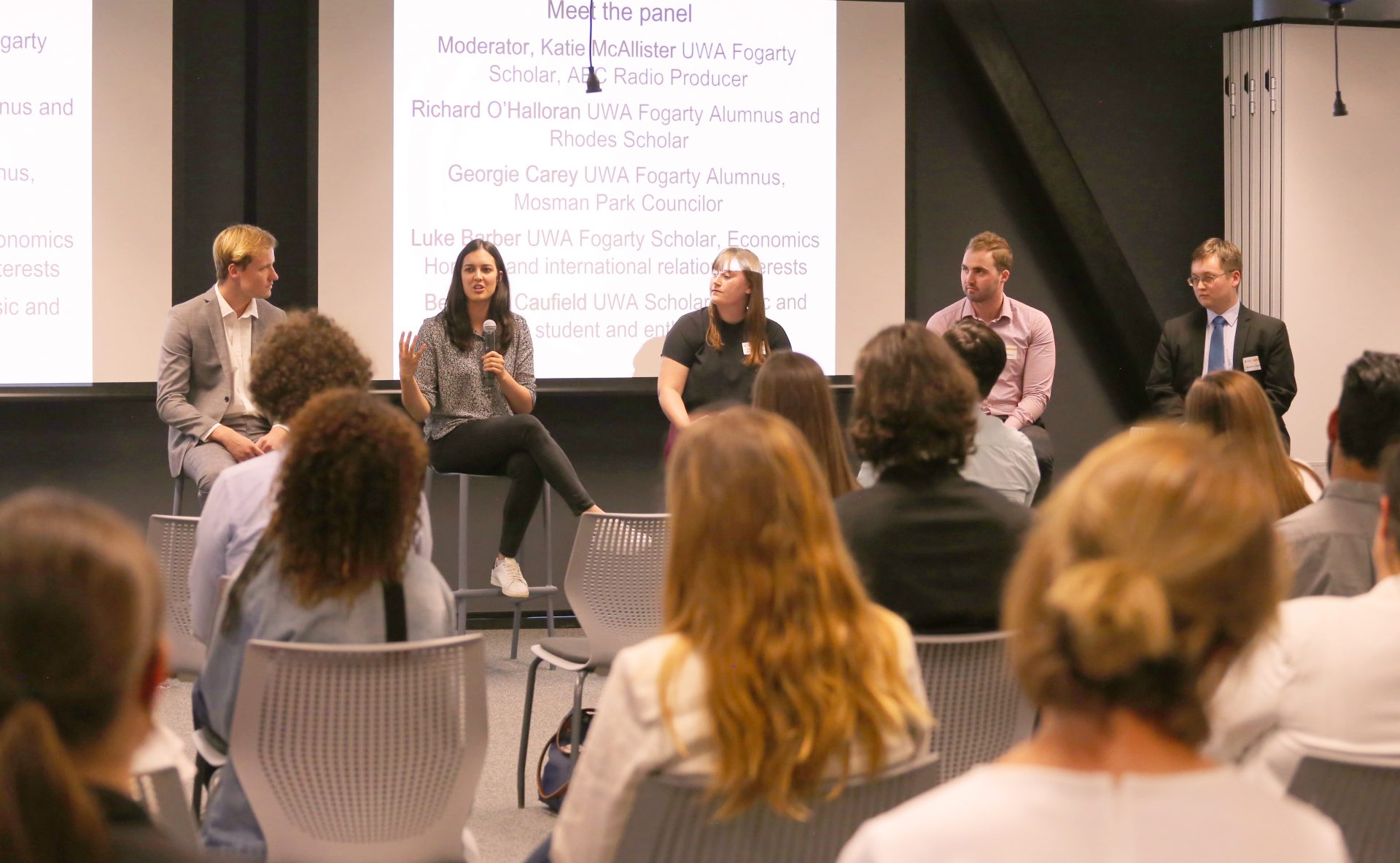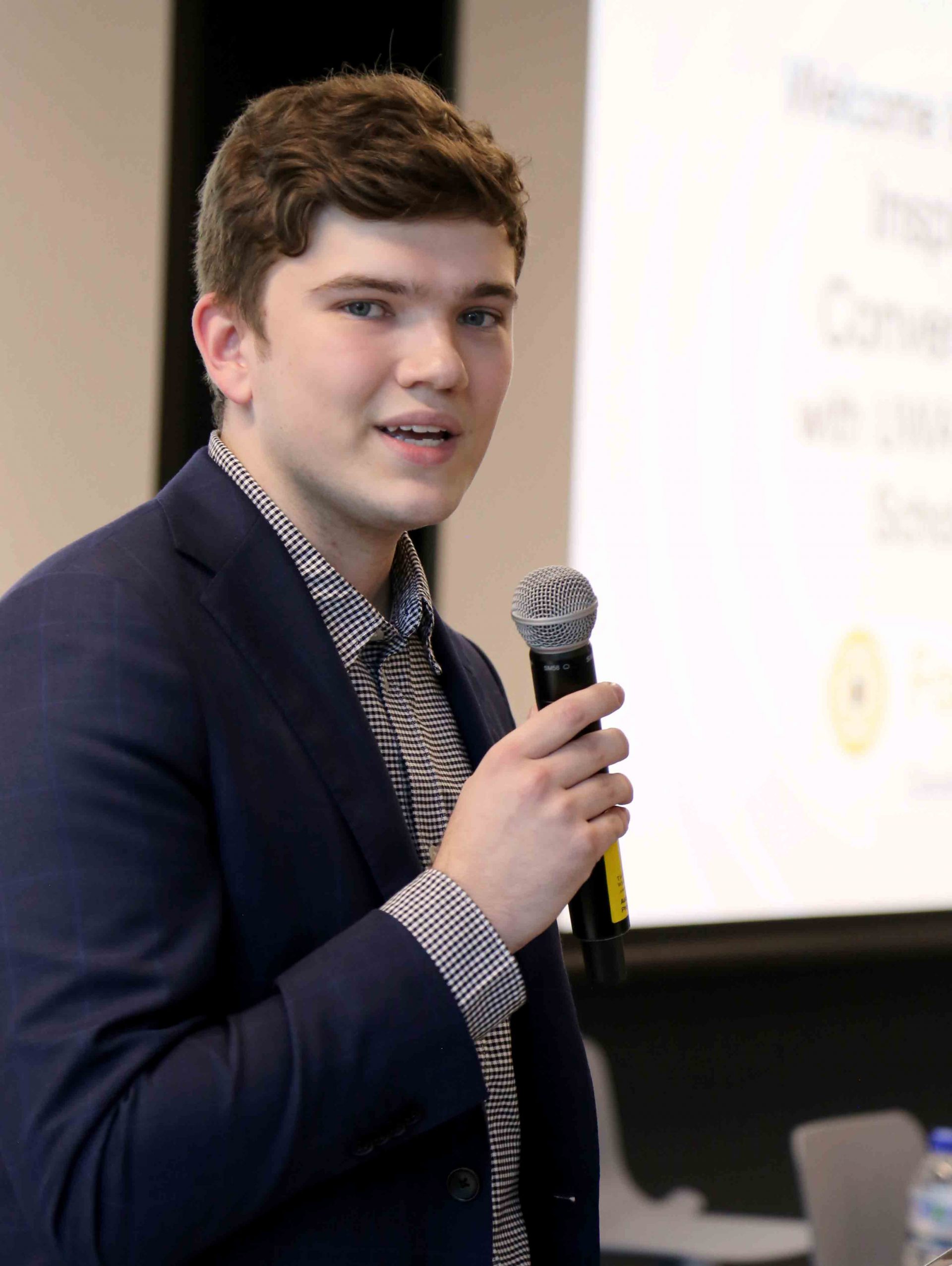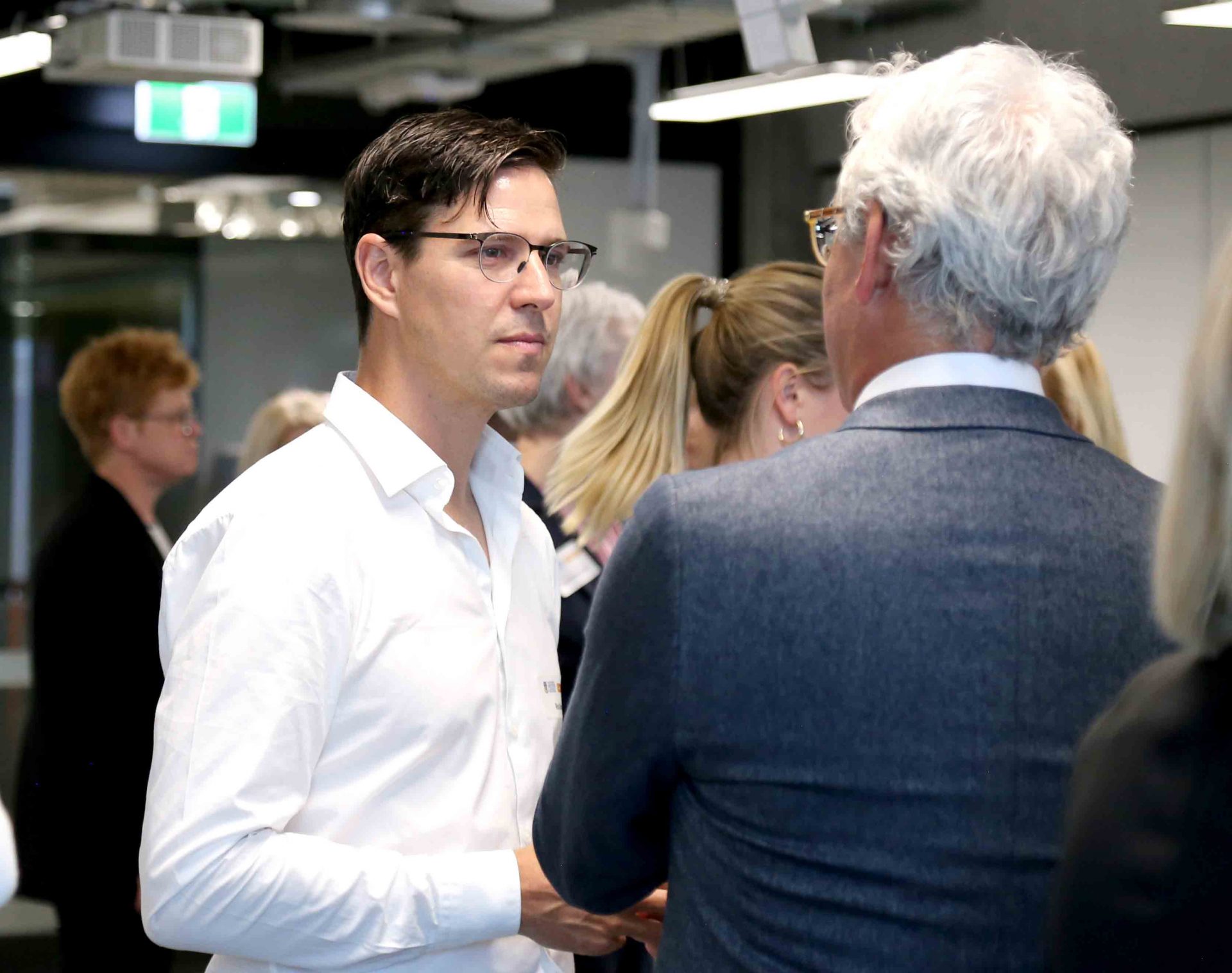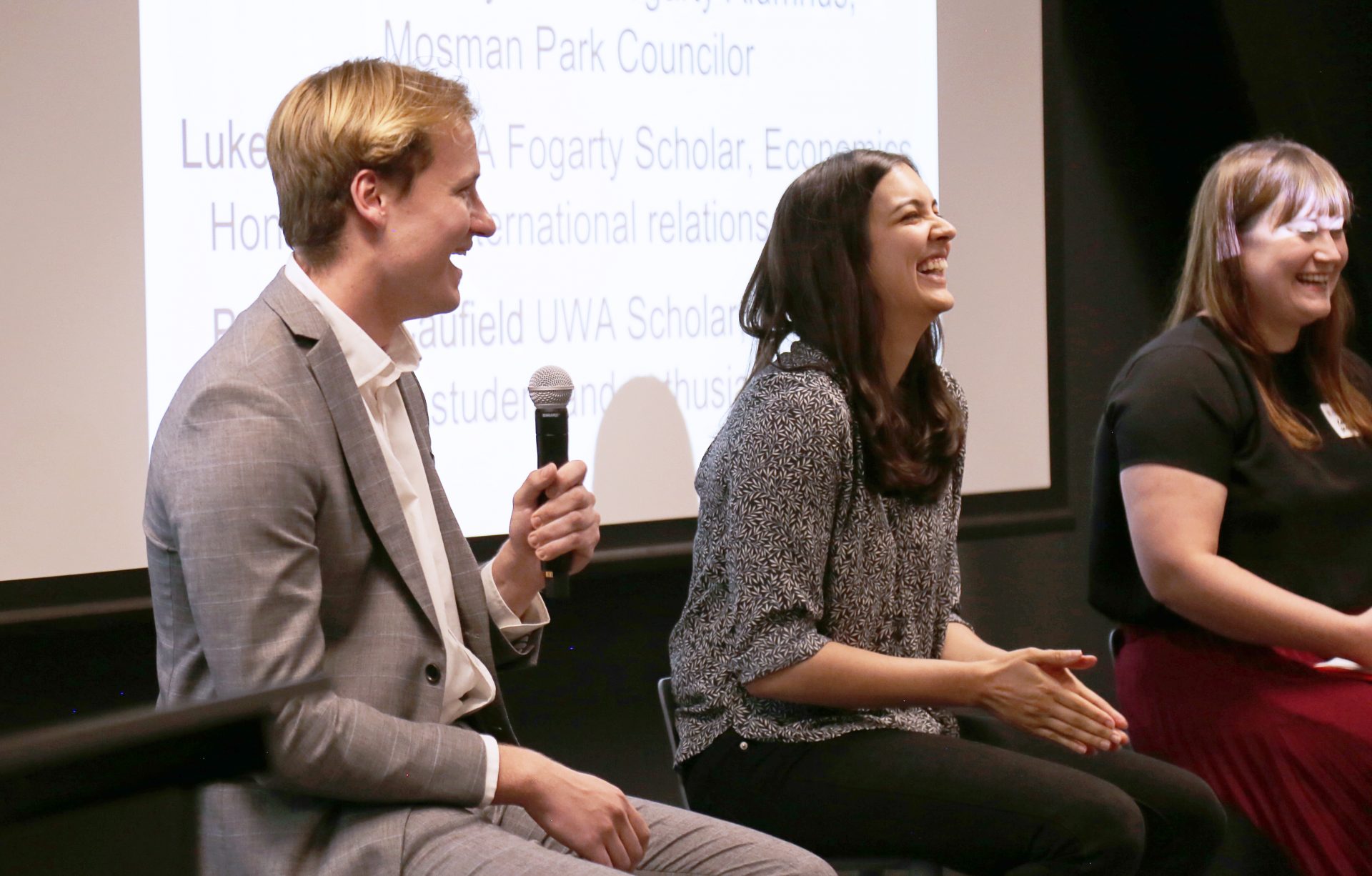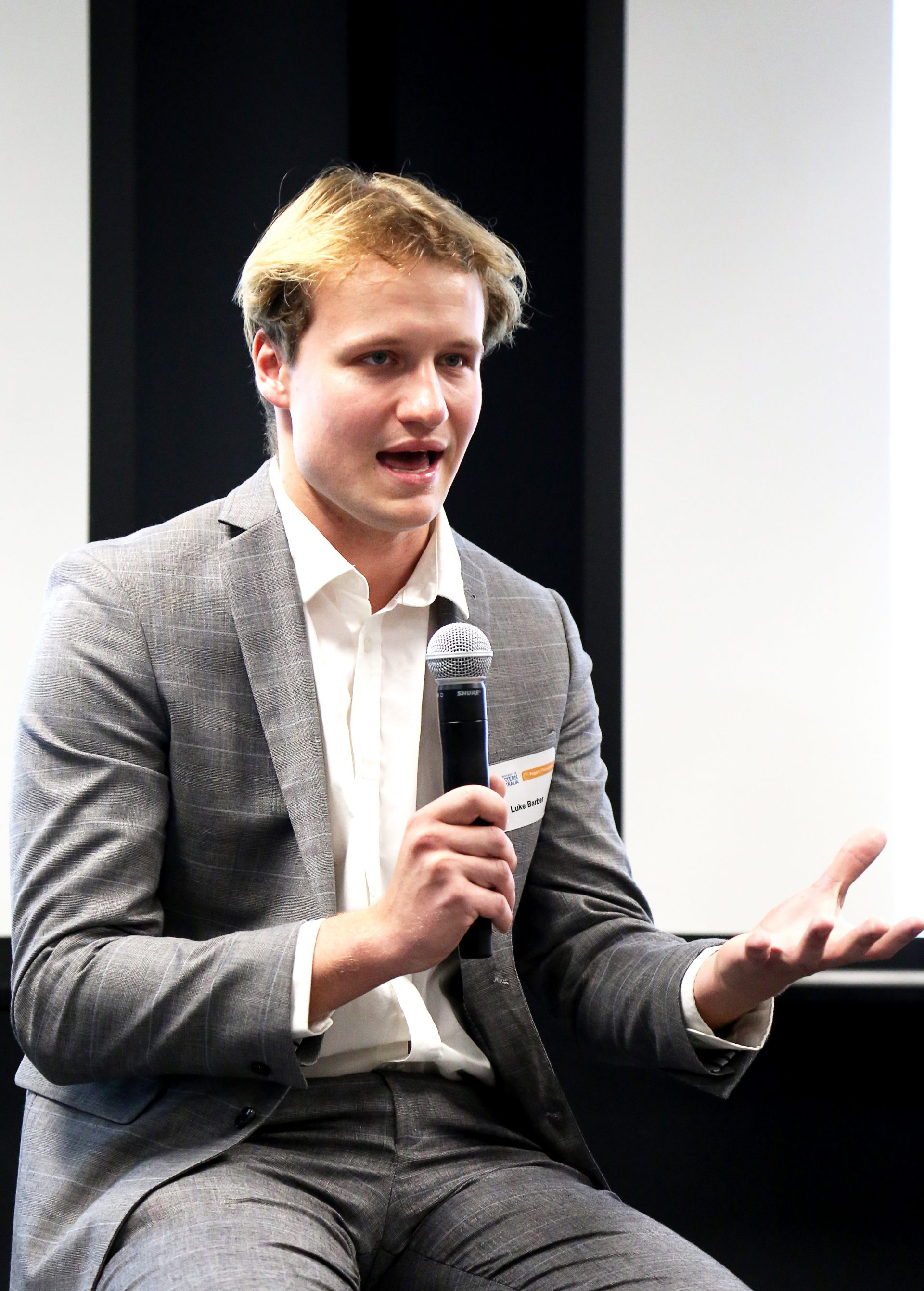The Investment Dialogue for Australia’s Children
In a landmark event held in Canberra on December 4, 2023, the Investment Dialogue represented a transformative moment in Australia’s philanthropic landscape. This national initiative, dedicated to enhancing the well-being of children, young people, and their families, brought together leaders from philanthropy and the government to forge collaborative pathways toward a brighter future.
A highlight of the Investment Dialogue was the signing of a Working Together Agreement by the Treasurer, the Hon Jim Chalmers MP, and the Minister for Social Services, the Hon Amanda Rishworth MP. This groundbreaking agreement, endorsed by 20 philanthropic organisations, including the Fogarty Foundation, represents a commitment to joint efforts in enhancing the lives of Australia’s youth. It sets the stage for a decade-long dedication to collaborative and philanthropic initiatives, signifying a sustained effort to bring about enduring positive change.
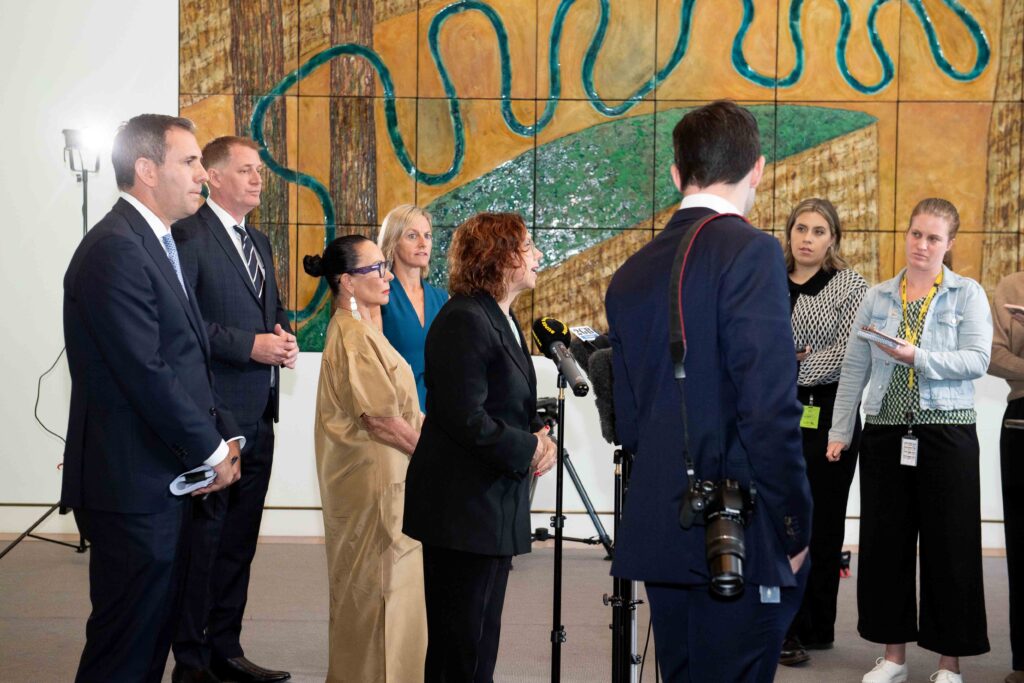
‘We owe it to all Australians, and particularly Australia’s children, to tackle entrenched disadvantage in our communities. The Investment Dialogue for Australia’s Children will help in achieving our goal.’ the Hon Amanda Rishworth MP, 2023
The Investment Dialogue will include the establishment of Community and First Nations Leadership Councils, a core outcome that promises to support the Dialogue’s decision-making processes. Chaired respectively by Catherine Liddle and April Lawrie, these councils aim to ensure that the lived experiences of communities and First Nations peoples are integral to the Dialogue’s proceedings. An open Expression of Interest process for council members will occur in early 2024, fostering inclusivity and diversity in leadership.
Four strategic Working Groups have emerged from the Investment Dialogue, each with a specific focus on driving positive change:
- Data Working Group (established in early 2024): Prioritising improvements in data practices, including community access to data, this group aims to identify areas for reform, facilitate effective investment decisions, and support community decision-making.
- Place Working Group (established in early 2024): This community-led group focuses on delivering targeted, place-specific solutions and collaborates on ongoing initiatives across government and philanthropy.
- Integration and Investment Flows: This group aims to enhance coherence in local-level investments, supporting the design, funding, and delivery of integrated and holistic services and solutions.
- Evaluation and Learning: Committed to continuous improvement, this group collaborates on evaluating the impact of the Investment Dialogue, ensuring that insights are shared widely.
The Investment Dialogue for Australia’s Children stands as a testament to collaborative philanthropy, embarking on a transformative journey to improve the well-being of the nation’s youth. With a strong foundation laid by the Working Together Agreement, a ten-year commitment, and the establishment of the Leadership Councils and Working Groups, the Dialogue promises to be a catalyst for positive change. As it unfolds, this philanthropic endeavour is poised to shape the future for Australia’s children, fostering a society where collective efforts lead to enduring well-being and prosperity. The subsequent roundtables in 2024 are anticipated to build on these commitments, propelling the Investment Dialogue toward even greater heights of impact and innovation.
The Foundation is proud to be part of this important initiative.
Life’s Lottery: Backing Kids is a new series of the Paul Ramsay Foundation’s podcast where experts, young people, advocates and policymakers discuss how we can improve wellbeing by putting children at the centre of government policy and budgets.
The podcast was highlighted in an article in The Australian on Wednesday 30 March 2022. Authors Anne Holland National Children’s Commissioner and Glyn Davis Chief Executive of the Paul Ramsay Foundation said that, “children’s voices often go unheard in decisions that greatly affect them.”
As an Ambassador for Children and Young People in WA, I agree that we need to change the way we make our policies: For each policy that is discussed, consideration needs to be made in how children will be affected by these policies and decisions.
Jacqueline McGowan-Jones has recently been appointed as the new Commissioner for Children and Young People WA. The Commission works closely with children and young people, their families, communities and government to make WA a better place for 0 to 17-year-olds. As well as advocating for children’s rights, they have a range of resources and projects including the ‘Speaking Out Survey’ which last year spoke with more than 16,500 children and young people from all regions of WA who shared their experiences and views on safety, mental health, engagement in education, connection to community and how they access sources of support – www.ccyp.wa.gov.au
One hundred and fifteen West Australian teachers and 100 students have cut their holidays short, returning to school for the fifth annual Fogarty EDvance Teaching Intensives.
Initiated by the Fogarty Foundation in 2018, the intensives are run in partnership with Dr Lorraine Hammond, Associate Professor at Edith Cowan University, and hosted at Dawson Park Primary School. Each year the intensives have grown, supporting more than 365 teachers to implement high-impact instruction practices.
The intensive week of professional learning provides early childhood, primary and secondary teachers with the opportunity to observe expert teachers, practise key skills, and obtain feedback and coaching as they finesse their high-impact instructional strategies. Steered by Dr Hammond, the program was created following evidence-based research into how to effectively support teachers to adopt new practices.
“Research confirms that ‘one shot’ professional learning does not work. Instead, educators can transfer new skills to their teaching practice when they have access to theory, quality teaching demonstrations and have the opportunity to practice instructional strategies with ongoing support, guidance, feedback and coaching,” Dr Hammond explained.
“We are creating a community of teachers who have developed high-impact instructional strategies they can share with their peers and implement in their schools. By sharing best practice and collaborating with their peers, our teachers will create a ripple effect that will improve the quality of teaching in Western Australia,” she said.
High-impact instructional strategies integrate lesson delivery and design where content is explicitly taught with frequent checks for understanding. Lesson delivery relates to how content is presented (i.e., read with me) and includes continual checks for understanding by indiscriminately selecting students to take part in discussions. Lesson design refers to how new content is organised, presented and modelled (i.e., Guided Practice followed by Independent Practice). This includes daily reviews of previously learned knowledge and skills to reduce cognitive load and build automaticity.
High-impact instructional strategies have been used by teachers at Dawson Park Primary School since 2014. The school has seen significant improvements in NAPLAN scores since the inception of these teaching strategies.
“Our dedicated and professional team use high-impact instructional strategies in all areas of the curriculum. There is low variability in instruction, expectations are clearly communicated and as a result, our students come to school feeling comfortable and confident in their abilities – they know what to expect,” Pauline Johnson, Principal at Dawson Park Primary School explained.
“We’ve seen significant improvements in student results. Our students perform well above the average when compared to similar schools and they have a positive attitude towards their learning,” she said.
Georgie Wynne, Program Director at Fogarty EDvance reiterated the importance of innovative professional learning for educators and schools.
“It is vital for teachers to be knowledgeable about evidence-based pedagogical research so they can develop an innovative ‘toolkit’ for successful and impactful teaching,” Ms Wynne explained.
“Fogarty EDvance aims to inspire excellence and high-quality instruction in schools by investing in teachers, school leaders and school principals to ensure that all students receive a high-quality education, regardless of their background.”
The quality of student learning is inherently dependant on the quality of the school curriculum. The proposed new Australian National School Curriculum has met with a lot of discussion and feedback. In our opinion, the proposed curriculum does not prioritise evidence-based learning, nor does it set aspirational yet achievable standards. The introduction of key concepts, particularly in mathematics, fall far short of many other OECD countries.
We, along with hundreds of others, have submitted feedback to ACARA. You can read our submission below, with links from other regarded educationalists.
The Fogarty Foundation’s submission to ACARA regarding the proposed new Australian Curriculum
The Fogarty Foundation is a social purpose organisation, providing educational opportunities in Western Australia. I write to you with our 21 years of experience in education and particularly, through our 10 years of delivering Fogarty EDvance, a three-year school improvement program for school leaders in challenging communities.
Through Fogarty EDvance, we are working with over 100 low socio-economic schools (both primary and secondary schools) throughout Western Australia. We know that there is a high proportion of students who have difficulties with literacy, predominantly in their ability to read. Thirty-five percent of students in Year 7 in these schools (this equates to approximately 17% of Year 7 students nationally) are reading at a Year 3 level and below, which means they are not independent readers or able to read with fluency. At this level, these students are not able to access information in their books or on their screens in their classes. They lack confidence and no longer identify as a ‘learner’ in their school. As a direct result, many students disengage with education and for some, finish 13 years of school, illiterate and innumerate.
Many of the schools with which we work as part of the Fogarty EDvance School Improvement Program, set out on a journey to make significant improvements in the educational outcomes of their students – starting with reading. These schools set out to use evidence-based teaching and learning approaches to the teaching of reading. This typically involves using high-impact instructional strategies (such as explicit instruction) across the school with a strong focus on effective reading instruction in the early years. Effective reading instruction requires students during the early years of school to master the alphabetic code via systematic, explicit, and intensive instruction in phonemic awareness, phonics, reading fluency, vocabulary, and reading comprehension strategies (Department of Education, Science and Training 2005, p.25).
The schools strategically plan to implement effective reading instruction as part of their school improvement work and in doing so, know that the evidence that supports this type of instruction is solid. However, many of their teachers do not have the necessary skillsets to be able to teach reading in this way. As a response to this, the Fogarty Foundation established a teaching intensive in 2019, for schools to send teachers (both new graduates and experienced teachers) to receive a week of intensive coaching and demonstrations in explicit instruction. This included a focus on effective reading instruction in the early years. The teaching intensive was carried out during school holidays, with students at the low socio economic primary school giving up a week of their holidays to take part in the intensive. Demand was so great that we ran two intensives the following year, three in 2021 and are planning four for 2022. Again, there is no shortage of school students and teachers who want to be part of this program. In total, 250 teachers have been trained through our EDvance Teaching Intensives (using 200 students, 15 expert teachers/coaches and 2 program leads, Dr Lorraine Hammond and Brooke Wardana).
The demand for these skills is great, but the supply is low: skills which are not being taught in most Initial Teaching Education university courses. A previous EDvance staff member has now established a business to help address this need.
Given our work with school leaders over the past ten years and more recently, our work with teachers, our strong submission is that only evidence-based teaching approaches should be included in the proposed curriculum. The inclusion of whole language in the revised Australian
Curriculum is out of step with research and is failing our children. We concur with the submission made to ACARA by Emeritus Professor Max Coltheart on behalf of the members of the Developmental Disorders of Language and Literacy (DDoLL) network dated 7 May 2021, including the attachment of the article written by Dr Jennifer Buckingham that was published in The Australian on April 30, 2021.
We draw your attention to our website and in particular, the Report Card for Cohort 4 which can be located here. What school leaders and teachers need to improve reading for their students is clear guidance from the Australian Curriculum on effective reading instruction. It is our strong belief that with evidence-based approaches to teaching and learning, all schools can improve academic (and ultimately, life) outcomes for their students.
You can read additional feedback at the following links:
Curriculum takes backward step on the path to literacy – Five From Five
Open letter to Mr. David de Carvalho, CEO of ACARA, and the ACARA Board
A recent article in the Australian Financial Review commended Sydney’s $120 billion tech cluster.
…this pocket of thriving tech activity has all the ingredients for creating a sustainable tech ecosystem, including the presence of well-funded venture capital firms, adjacency to three universities undertaking world-class research and a bunch of wealthy tech founders keen to invest in other start-ups.
Australian Financial Review
We know that an ecosystem – a cluster of businesses, intellect and support – is needed to get a sustainable industry up and growing.
Businesses are injecting capital and intellect, the NSW government is proactive in developing the new Tech Central with 200,000 square metres of space for tech start-ups and providing access to rent subsidies and this is being fed and supported by three universities that are all within bus or tram rides of the Surrey Hills hub.
The universities of Technology Sydney, NSW and Sydney all have a focus on the need to provide next generation skills and are active in supporting a start-up mindset with their students. UTS’s specialist start-up programs alone have 350 active start-ups.
The new Vice Chancellor at UNSW Attila Brungs who was previously at UTS, recently said that UNSW is looking at ‘meeting the skilling revolution Australian society needs’.
Not only is the Western Australian government not active enough in developing the clusters needed for innovative companies and industries to get traction and thrive, our universities do not have a clear strategy on developing the skills students will need for future-focussed jobs.
WA is still very much a resource focused state. But we are part of the global economy in a world that is rapidly changing and if we are to make the most of the opportunities that these changes offer, we need to build a knowledge economy: We need to become a smart and inspired state.
We need to build a knowledge economy: We need to become a smart and inspired state.
Annie Fogarty
Unfortunately our educational aspirations are deteriorating – WA has the lowest ATAR participation rate in the country – only 35% of our Year 12 students study for their ATAR, as opposed to the national average of around 65%.
It is important that there are various pathways to tertiary education to enable access to a diverse range of students, but low numbers of students taking ATAR subjects indicates low aspirations. A low ATAR focus within schools means that lower secondary curricula may not be sufficiently challenging and will limit post-secondary options for all students.
We need to be building a culture of excellence in education with high aspirations for all children. Business, government and the education sector need to come together to ensure our young people have the skills, the mindset and the incentives to develop a smart state utilising the great advantages that technology offers.
South Perth resident Brooke Dunnell won the 2021 Fogarty Literary Award for Western Australian writers aged 18 to 35 at the ECU Spiegeltent on Wednesday 2 June 2021. Dunnell receives a $20,000 cash prize from the Fogarty Foundation and a publishing contract with Fremantle Press for her winning manuscript The Glass House.
Dunnell who turned 35 just one week after entries for the award closed said the Fogarty deadline pushed her to finish her manuscript. Dunnell said, ‘In other circumstances I might have run out of puff and started to second-guess myself before getting it to the level where I was happy to have others read it. Because I began and finished writing the manuscript so close to the deadline, I didn’t have the chance to share it with [my] readers … so I couldn’t be sure whether everything was working the way I intended.’
Dunnell’s winning manuscript, The Glass House, centres on 36-year-old Julia, who takes a break from her faltering marriage in Melbourne to help her ageing father move out of the family home in Perth. While visiting, she bumps into a childhood friend, Davina, who is keen to reignite their friendship and gets overly involved in Julia’s life without being very open about her own. At the same time, Julia starts having dreams about a shadowy male threat against her stepdaughter, Evie.
Dunnell who has a PhD in creative writing from the University of Western Australia said, ‘I had a spark of an idea where one woman offers to be a surrogate for an old friend in a way that seems promising at the start but slowly unfolds to be a kind of power play. The final element that brought the whole thing together came from thinking about inappropriate behaviour between adults and teenage girls, and how the girl can mistakenly believe she has some agency in what’s going on, only to later realise that … she was being manipulated.’
Executive Chairperson of the Fogarty Foundation, Annie Fogarty AM, said, ‘We are absolutely delighted to help another inspiring writer make the leap from manuscript to published book. Brooke’s talent as a short story writer is garnering her national recognition and we believe she has a long writing career ahead. More than this, her experience as a creative writing mentor and workshop facilitator will hold her in good stead when she provides literary leadership to other young Western Australian writers as a Fogarty Foundation ambassador.’
Fremantle Press CEO Jane Fraser said the Fogarty Literary Award had already unearthed a wealth of talent. Fraser said, ‘The winner, shortlisted and longlisted writers for the first Fogarty Literary Award have become an integral part of the Fremantle Press community. We’ve published five books by the Fogarty alumni to date and we’re thrilled by the responses we’ve had from reviewers and the reading public.’
Fraser said The Glass House is scheduled for publication in 2022, while shortlisted writers Patrick Marlborough and Georgia Tree will work with publisher Georgia Richter to further develop their manuscripts A Horse Held at Gun Point and Old Boy.
The official award ceremony, hosted by 2019 winner Rebecca Higgie, featured readings from The Last Bookshop by Emma Young, Where the Line Breaks by Michael Burrows and The Little Boat on Trusting Lane by Mel Hall – all of which were books shortlisted or longlisted for the first Fogarty Literary Award.
Article courtesy of Fremantle Press, originally published as Fogarty Literary Award winner used her last-minute, very last chance to take the prize.
Ten of the State’s highest achieving and most inspirational young people have accepted UWA Fogarty Scholarships, including this year’s Beazley Medallist, Josh Green (Christ Church Grammar School).
UWA Fogarty Scholarships offer the State’s brightest and most committed students a full scholarship for the entirety of their undergraduate and postgraduate degrees. Scholars are selected on their academic excellence and outstanding achievements in leadership, community involvement, enterprise, the arts and/or sport.
Winners of this year’s prestigious scholarships are Heather Bytheway (St Mary’s Anglican Girls’ School), Ella Dickie (Mount Lawley Senior High School), Josh Green (CCGS), Isabelle Hamer (Presbyterian Ladies’ College), Jason Lu (CCGS), Ella Miels (PLC), Joshua Peckover (Mandurah Baptist College), Ellen Smith (All Saints’ College), Emma Tinley (Bunbury Senior High School) and Sam Wake (Scotch College).
“I applied to be a UWA Fogarty Scholar because I saw it as a way to join a group of passionate, inspired and driven people,” said Jason Lu, 2021 UWA Fogarty Scholar.
“I want a career where I’m working towards positive change in the world and I saw the community of Fogarty Scholars as a group of like-minded people, actively driving these changes,” he said.
“I also saw the leadership development program as an opportunity to develop the skills that will allow me to achieve this ambition.”
In addition to financial support, the Scholars participate in a tailored leadership program, academic mentoring, leadership opportunities, support for their initiatives and are part of the Scholars and Alumni network.
“Current Scholars refer to each other as being more like family than colleagues, and this chance to build strong relationships and connections that will last for many years, is an incredibly attractive element of the program,” said Ella Dickie, 2021 UWA Fogarty Scholar.
“I’m looking forward to challenging myself in the company of many inspirational figures and to hopefully draw on their great knowledge and experience,” she said.
Annie Fogarty AM, Executive Chairperson of the Fogarty Foundation said, “We believe that through empowering young people with potential, they will provide vision and direction to enable positive change to benefit the community.”
“We need people to lead – in education and in life – which is why the UWA Fogarty Scholarships continue to be a key element of the Foundation,” Mrs Fogarty said.
Through the Leadership and Enterprise Program, the Foundation hopes to empower young people to be problem solvers and entrepreneurial creators. Many Scholars have started enterprises and not-for-profit organisations which the Foundation supports. They have now established the Scholars Enterprise Investment Fund to help the Scholar’s enterprises grow the next generation of businesses.
“The Enterprise Investment Fund will support the Scholars and build their networks, while enhancing WA-wide support for the next generation of enterprises, growing the number of jobs and diversity of businesses across WA and Australia,” Mrs Fogarty said.
Since 2004, the scholarships have educated and supported 166 outstanding young people. It is one of Australia’s premier scholarship programs. You can read about some of the exceptional Scholars at fogartyfoundation.org.au.
There were some very inspired conversations at the University of Western Australia (UWA) recently, as UWA Fogarty Scholar and ABC radio producer, Katie Macalister, moderated a panel discussion with four inspirational Scholars: Alumnus, Rhodes Scholar and Junior Doctor Richard O’Halloran; Alumnus and Mosman Park Councillor Georgie Carey; Luke Barber, who is completing his thesis in economics on Australian politics and media; and Benjamin Caufield, second year music student and enthusiast.
Held at the new EZONE UWA, a world-class learning space for engineering and mathematical science students, the event brought together past and present Fogarty Scholars, Professor Amit Chakma, Vice Chancellor of UWA, Annie Fogarty, Executive Chairperson of the Fogarty Foundation, and other UWA and Foundation staff and special invitees.
Katie introduced the panel before moderating discussions about the Scholars passions, how an enthusiasm for something can inform their career and life, and how it is important to acknowledge your passion without feeling guilty.
The Scholars also spoke about change; how change is implemented in local government, health care and the arts, and how a shift in the way we look at big data could be beneficial to the way we all see the world.
Graduating Scholars were recognised for their efforts and achievements as they were awarded graduation certificates, and it was announced that Rachel Tantular was the 2020 recipient of the Jeremy Cheang Award (you can read more about Rachel and her planned initiative here.)
Professor Amit Chakma, the new Vice Chancellor at UWA spoke about the significance of the scholarship program and the impactful role that the Scholars can play both while they are at university and once they are pursuing their careers and ambitions.
Thank you to everyone who attended this inspiring event. It was a wonderful opportunity to hear about how the UWA Fogarty Scholars are working towards or already acting as leaders in our community and beyond.
Students from Thornlie Senior High School, Southern River College, Cannington Community and Lynwood Senior High School recently had the opportunity to observe and interact with the dynamic research scientists at The Harry Perkins Institute of Medical Research.
Sponsored by the Fogarty Foundation and selected for their keen interest in Science, the Year 10 and 11 students were invited to take part in the BioDiscovery Centre’s Perkins Profs Program. They were guided by leading medical research scientists through the lab techniques and knowledge used to understand medical research. Lab sessions included staining cancer cells, amplifying genes, an introduction to bioinformatics, viral outbreak, protein identification and the use of nanoparticles for drug delivery.
The Harry Perkins Institute is a world leading medical research hub, conducting innovative research that translates into lasting health benefits. A key focus of the Institute is to engage community and school groups into the world of medical research, through the Lotterywest BioDiscovery Centre.
Since 2018, the Fogarty Foundation has been sponsoring the Perkins Profs program for students from EDvance schools, with the aim of inspiring students to work towards a successful STEM career. In total, the Foundation has supported more than 120 students to take part in the Perkins Profs program.
In today’s globalised world, leadership and communication skills are not only desired, but increasingly required by employers. Workshops at the conference will give students the tools to become leaders of their communities and identify which communication strategies work most effectively for them.
Throughout the conference, students will be involved in a number of exercises that aim to challenge them to understand their own beliefs and motivations. Goal-setting activities and self-reflection will encourage students to think introspectively and realise areas in which they can improve as global citizens.
Presentations from community leaders in Western Australia will inspire Futures attendees to think outside of their comfort zone and take on a challenge to improve a social issue that resonates with them. A Politicians Panel will interview State and Federal politicians to find out how they are addressing these societal problems.
While Futures promotes attendees to think big, action on a global scale starts at a grassroots, community level. With a social issue in mind, the conference will focus on how students are able to become more involved in community-based leadership.
The Fogarty Futures Leadership Conference will be held from 29 September to 2 October 2020, for Year 10 & 11 students. The conference combines exciting workshops with incredible speakers, endeavouring to inspire WA’s youth to be leaders in their communities.
To apply, visit https://fogartyfutures.org/apply/
Email: admin@fogartyfutures.org
Facebook: www.facebook.com/futuresconference
Instagram: https://www.instagram.com/fogartyfutures/
Charlie Singleton
2018 Futures attendee – Methodist Ladies’ College, Year 11
“The conference was a really great experience which helped me to refine my leadership skills and future goals. It was a unique opportunity to meet a group of young people who could inspire each other with their diverse perspectives.”
Eva Marsh
2017 Futures attendee – Presbyterian Ladies College, Year 11
“Futures was a great way to meet and get to know, not only other amazing people my age from all different schools and backgrounds with different goals in life, but also older UWA students who had amazing advice to give. I found the experience really valuable in helping me to discover my purpose and felt that all of the activities really flowed well into this common goal.”
